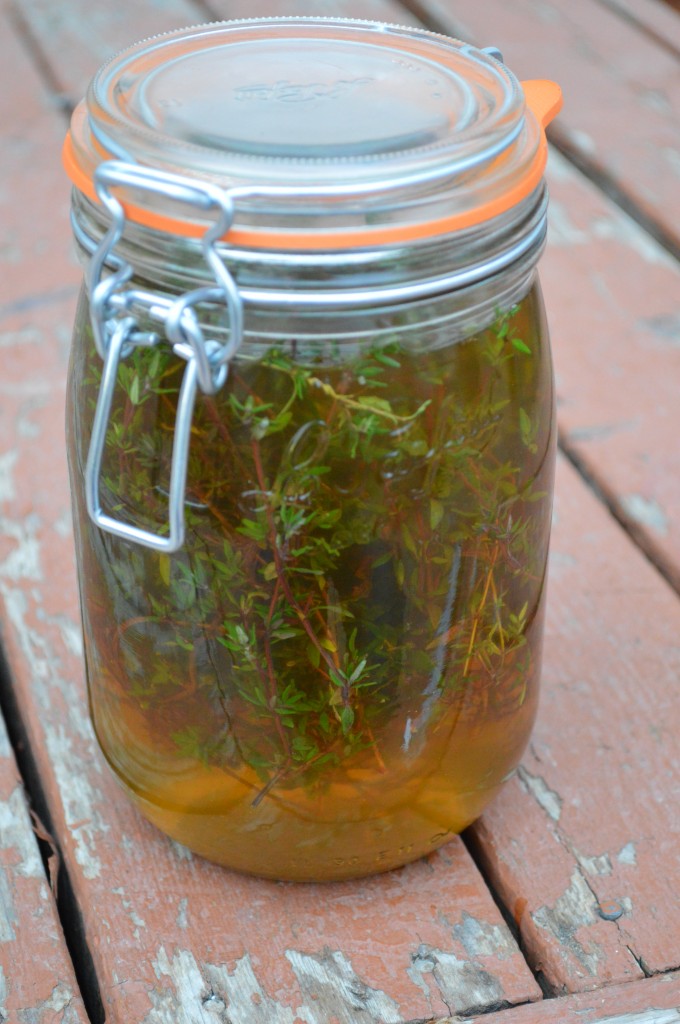Resinous herbs can easily handle lights frosts, so this time of year we still have a good deal of thyme, rosemary, and other robust herbs in the garden. Thankfully there is an entire repertoire of methods to preserve them before the snow falls. You can collect them in large bouquets and hang them in your kitchen to dry, for instance. Or make salted herbs. Or pack them into a jar and pour vinegar over them. This past week I racked a couple gallons of cider vinegar from a healthy vinegar crock, so herb vinegar seemed the best way to save our thyme.
The aromatic components of herbs are called essential oils. They more closely resemble fats, ethanol, and acetic acid than they do water, and they therefore dissolve readily in oil, booze, and vinegar. Over the coming weeks and months sprigs of thyme will infuse my cider vinegar with their volatile essential oils, and the resulting liquid will then be used in vinaigrettes and marinades.
There are two ways to maximize the extraction of essential oils when making herb vinegar. One is to lightly bruise the herbs before submerging in vinegar, which damages some of the plant cells and allows the vinegar to better penetrate and dissolve the oils. Another is to heat the vinegar before you pour it over the herbs.
I elected to lightly bruise the thyme, but not to heat the vinegar. I’m hoping this will better preserve the flavour of the fresh thyme.
Now we wait.
